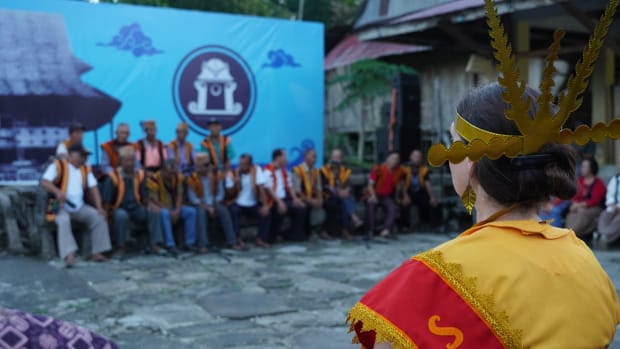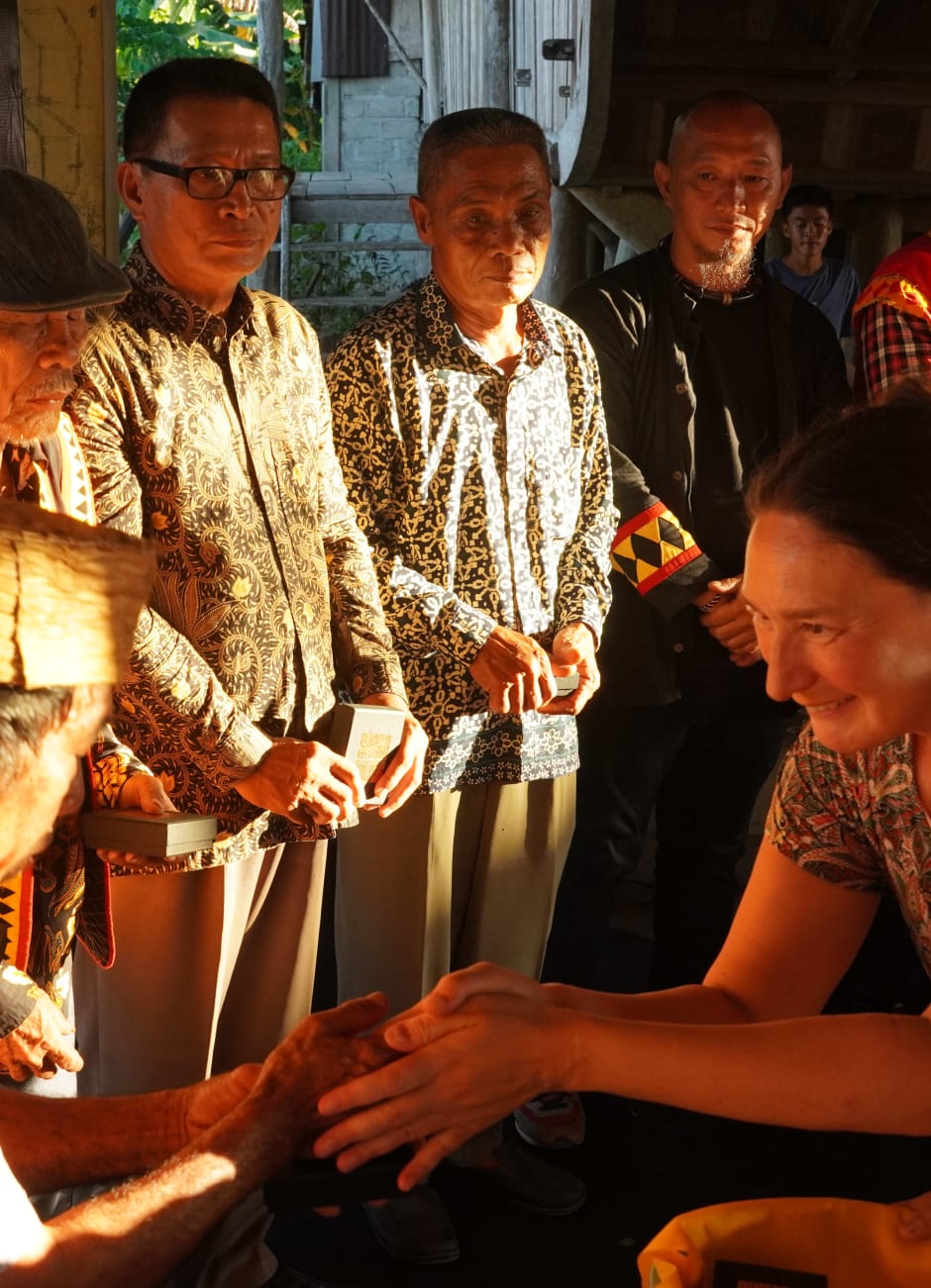
UvA returns colonial sound collection to Indonesians
Songs recorded by Indonesian residents that had been stored at the University of Amsterdam for many years have now been returned to the island of Nias. This means that from now on, the Indonesians will decide on the collection, not the University of Amsterdam. “Some descendants became very emotional when they heard the voices of their ancestors for the first time.”
The University of Amsterdam (UvA) recently returned control of a sound collection to Indonesians on the island of Nias. Last summer, the digitalised recordings were handed over on a USB stick to the descendants of the singers whose voices were recorded. From now on, the Indonesian descendants can decide for themselves what happens to their digital sound recordings.
UvA ethnomusicologist Jaap Kunst (1891-1960) recorded the Indonesian singers in 1930 in order to preserve the songs. However, Kunst took the recordings back to the Netherlands without giving the singers themselves access to them. For a long time, the singers’ descendants did not even know that the recordings existed. With the transfer back to Indonesia, the singers’ descendants are regaining control over the recordings.
The return of material from the colonial era is part of a broader development within the UvA. From 2023, the UvA will be conducting research into its role in the colonial past. Since that same year, the UvA museum Allard Pierson has been examining which archaeological finds in its collection were illegally acquired and must be returned. So far, no material has been returned by the UvA.

Looted art
The recordings are currently still publicly available and form part of the University of Amsterdam’s “Jaap Art Collection”. In 2024, most of the digitised collection from 1919-1934 was made available online. The recordings consist of songs from various Indonesian cultural groups that UvA ethnomusicologist Jaap Kunst collected in what was then the Dutch East Indies. The original wax cylinders on which the recordings were made remain the property of the UvA.
According to Titus, the recordings from 1930 are not looted art, because strictly speaking, nothing material was taken away. However, they do have a strong colonial character, says the musicologist. “Jaap Kunst made his selections in a colonial manner: he staged his recordings in detail and personally selected which music was ‘exotic’ enough to be preserved for future generations. The singers had no say in how their form of expression was recorded.”
Sensitive
The return was only made to the inhabitants of the Indonesian island of Nias. The official restitution to inhabitants of other Indonesian islands will follow in the coming years, says associate professor Barbara Titus, who is coordinating the return. She travelled there personally for the symbolic transfer of the digital material.
Doni Kristian Dachi, originally from Nias, came across the voices of his ancestors in the UvA’s online collection last year. After contacting Titus, they decided to officially transfer control to the benificiaries on Nias. Titus travelled to Nias and handed over the USB stick to several dozen descendants. “Some descendants – often singers of the old repertoire themselves – became very emotional when they heard the voices of their ancestors for the first time,” says Titus. The benificiaries to whom control has been transferred want to use the songs for study and possibly for art projects.
However, the recordings are a sensitive issue in Protestant communities on Nias: some Protestant residents consider the songs to be “pagan”. There is also discussion in other communities, for example about which music can be attributed to which community. Titus says that it will be quite a task to return the entire Jaap Kunst Collection to the Indonesian people. “I will be working on this for the rest of my life.”

